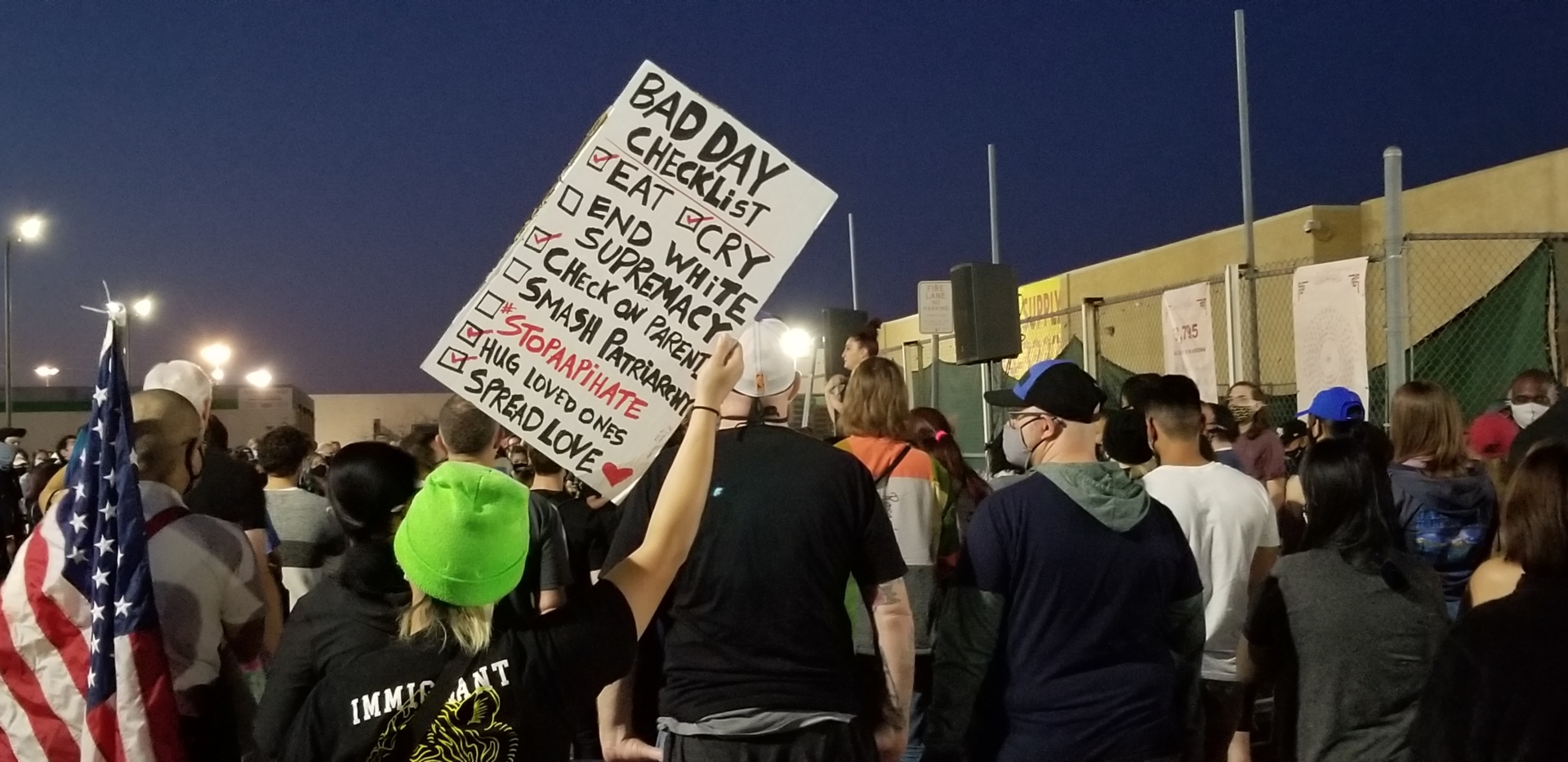Vicente Reid, chief executive officer of the Arizona Asian Chamber of Commerce, brought out two chairs and set them in the field in front of his home. His shirt with #StopAAPIHate as well as his mask with the Tagalog word Mabuhay, “Long live!” conveyed the interview’s topic: racism toward the Asian American community in Arizona and its businesses.
As a key leader within the Arizona Asian American community, Reid said that he has an obligation to speak up and tell what his community is facing.
“We’re facing a pandemic of ignorance,” Reid said.
READ ALSO: The rise of Mesa’s Asian district
Asian-owned businesses in Arizona are suffering as the COVID-19 pandemic continues, Reid said. Verbal slurs, shattered windows and attempted robberies have occurred as these businesses try to stay afloat; They push forward even though the crisis seems infinite.
Since the beginning of the COVID-19 pandemic, the Asian American Pacific Islander (AAPI) community within the United States is on edge after a string of attacks that resulted in injuries and deaths. Individuals of all ages and nationalities have been targeted.
Stop AAPI Hate, an organization tracking anti-Asian hate incidents, reported 6,603 incidents from mid-March 2020 to March 2021. These incidents come from all 50 states as well as the District of Columbia.The primary site of discrimination is businesses, according to the organization.
During the same time period, 76 anti-Asian incidents occurred in Arizona, almost doubling from 43 cases, according to Dr. Aggie Yellow Horse, an assistant professor of Asian Pacific American Studies & Justice and Social Inquiry at Arizona State University.
This rise in anti-Asian hate can be a product of multiple mechanisms, Dr. Yellow Horse said. She suspects that two factors can be attributed to this rise. It can be that more anti-Asian hate incidents are occurring and/or people are reporting more due to increased awareness and media attention.
Asian-owned businesses in Arizona do not have a lot of trust, Reid said. Vandals have broken windows and committed worse acts, he pointed out. Younger and older business owners have faced similar situations.

Anthony Amphonephong, a 23-year-old manager at iTea, a boba tea shop in Tempe, and chief of staff at the Arizona Asian Chamber of Commerce, describes the ongoing situation.
“It’s almost scary to be a person who works at an Asian-owned business,” Amphonephong said.
He confirmed what Reid said, that he and his coworkers find themselves looking over their shoulders and becoming more aware of their surroundings as they work, staying vigilant as customers come in and out.
According to the Chamber, Asian-owned businesses have seen around a 60%-85% loss since the beginning of the COVID-19 pandemic. Now, anti-Asian sentiments are rising within the country and Asian-owned businesses are left struggling even further, Reid said.
“COVID was a catalyst for racism to come out,” Amphonephong said.
Asian businesses are seeing less traffic, experiencing losses in revenue, and are feeling the hatred that is being sent to them, Reid said.
For 81-year-old Marian Tadano, a Japanese American, former vice president of academic affairs at Phoenix College, and survivor of Japanese internment during World War II, it brings back painful memories.
She describes her tenure at the Crystal City Enemy Detention Center in Texas as a time where “racism as a child is embedded.”
“You get isolated out. You get looked upon,” Tadano said.
In the midst of the pandemic, she said the Asian American community is reliving the hatred it repeatedly saw in the past.
For Donna Cheung, a Chinese American board member and chair of the Civil Rights Committee of the Japanese American Citizens League, it is not surprising and said that things need to change. She wants elected officials to acknowledge the pain the Asian American community is going through. She sees their silence as a “deflection of responsibility.”
Cheung also said she wants the Asian American story to be in the American story and for Asian Americans to be seen as Americans.
“I don’t have to explain my Americanness because I don’t have a white face.”
Asian-owned businesses face tough obstacles, but the community is implementing solutions to overcome them.
Reid said that the Arizona Asian Chamber of Commerce worked with cities in Arizona to make available around $3 million to local Asian-owned businesses for funding.
The Chamber also implemented Takeout Thursdays where it would highlight small business owners and their products—marketing videos and promotions—every week to drive traffic to their areas.
Anthony Amphonephong at iTea said that the Chamber is also working to establish a more connected community by connecting business owners with each other via a group chat. He hopes that this will create a more interconnected group of Asian-owned businesses that can rely on each other for support.
In addition, help is coming from outside the community. Nationally, Asian American business leaders pledged to donate $10 million toward supporting AAPI communities, Dr. Yellow Horse said.
While the Asian business community, and the Asian American community in general, is facing hardships, it will continue to tell its story, Reid said.
“We need to not falter, not fear, and not hate, continue living our lives, showing that we’re not going to be afraid and we’re not going to live in fear.”




